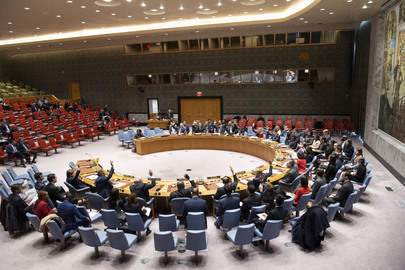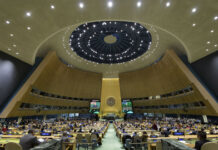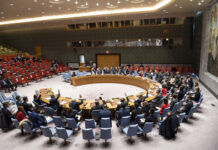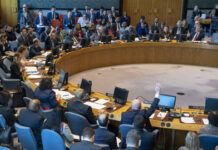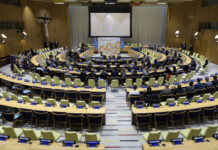This is the News in Brief from the United Nations.
Aid mission denials are latest threat to Gaza’s hospitals: OCHA
Repeated refusals by Israeli authorities to allow UN aid teams to deliver desperately needed humanitarian relief inside Gaza have effectively cut off five hospitals in the north from access to “lifesaving medical supplies and equipment”, the UN aid coordination office, OCHA, has warned.
The development comes amid reports of intensified bombing and clashes across the Strip on Wednesday – including an overnight attack in Rafah city that left 15 dead.
According to OCHA, requests have been denied five times since 26 December to reach the Central Drug Store in Gaza city and Al Awda Hospital in Jabalya, located further north.
The UN aid office also warned that “the continued denial of fuel delivery” needed to run water and sanitation facilities had significantly heightened the spread of communicable diseases, which are already at alarming levels.
Global unemployment to increase in 2024, warns ILO report
Global unemployment is expected to rise this year, with growing inequality and stagnant productivity also clouds on the economic horizon, the UN labour agency ILO said on Wednesday.
Just over five per cent of the world’s workforce is without a job, according to the International Labour Organization’s World Employment and Social Outlook Trends 2024 report.
This is a better situation than before the pandemic, but it isn’t set to last, as an extra two million workers are expected to be looking for a job over the next 12 months, the ILO said.
The UN agency’s findings chime with a new World Bank report indicating that the global economy is on track for the slowest half-decade of growth in 30 years.
In addition to the uncertain jobs market outlook, the International Labour Organization noted that the majority of the world’s richest nations had seen living standards eroded, because of inflation.
It’s “unlikely (that this) will be compensated quickly”, said ILO, which also highlighted significant differences in employment rates between richer and poorer countries.
By way of an example, the UN agency explained that 8.2 per cent of workers in high-income countries experienced short or long-term unemployment, compared with 20.5 per cent in low-income nations.
Top UN rights body elects Moroccan president for a year
To Geneva, where the UN Human Rights Council has elected a new president – Morocco’s Omar Zniber – to guide its work this year.
Ambassador Zniber was chosen by secret ballot – a procedure that only takes place when the Council’s 47 Members cannot reach consensus on who will steward proceedings of the UN’s premier human rights forum.
The Council’s new president edged ahead of the South African candidate, Ambassador Mxolisi Nkosi; both candidates were nominated by the Group of African States which holds the Council presidency in 2024.
The most recent President of the Human Rights Council elected by secret ballot was in 2021, when Ambassador Nazhat Shameem Khan of Fiji was selected to serve.
The next regular session of the Council begins on 26 February, when top rights experts will report on human rights situations of concern around the world that require the attention of the international community.
Daniel Johnson, UN News.
Source of original article: United Nations (news.un.org). Photo credit: UN. The content of this article does not necessarily reflect the views or opinion of Global Diaspora News (www.globaldiasporanews.com).
To submit your press release: (https://www.globaldiasporanews.com/pr).
To advertise on Global Diaspora News: (www.globaldiasporanews.com/ads).
Sign up to Global Diaspora News newsletter (https://www.globaldiasporanews.com/newsletter/) to start receiving updates and opportunities directly in your email inbox for free.


